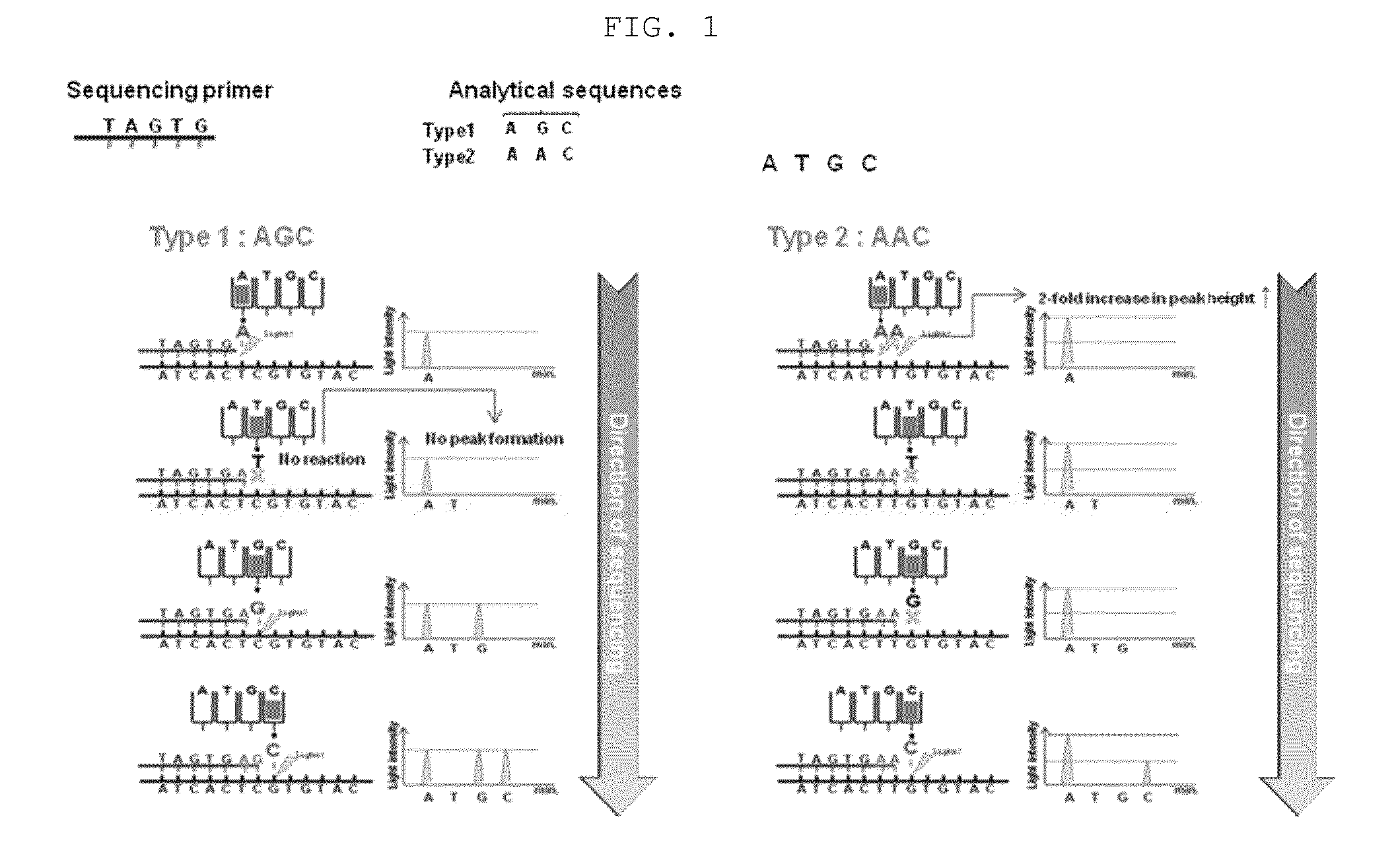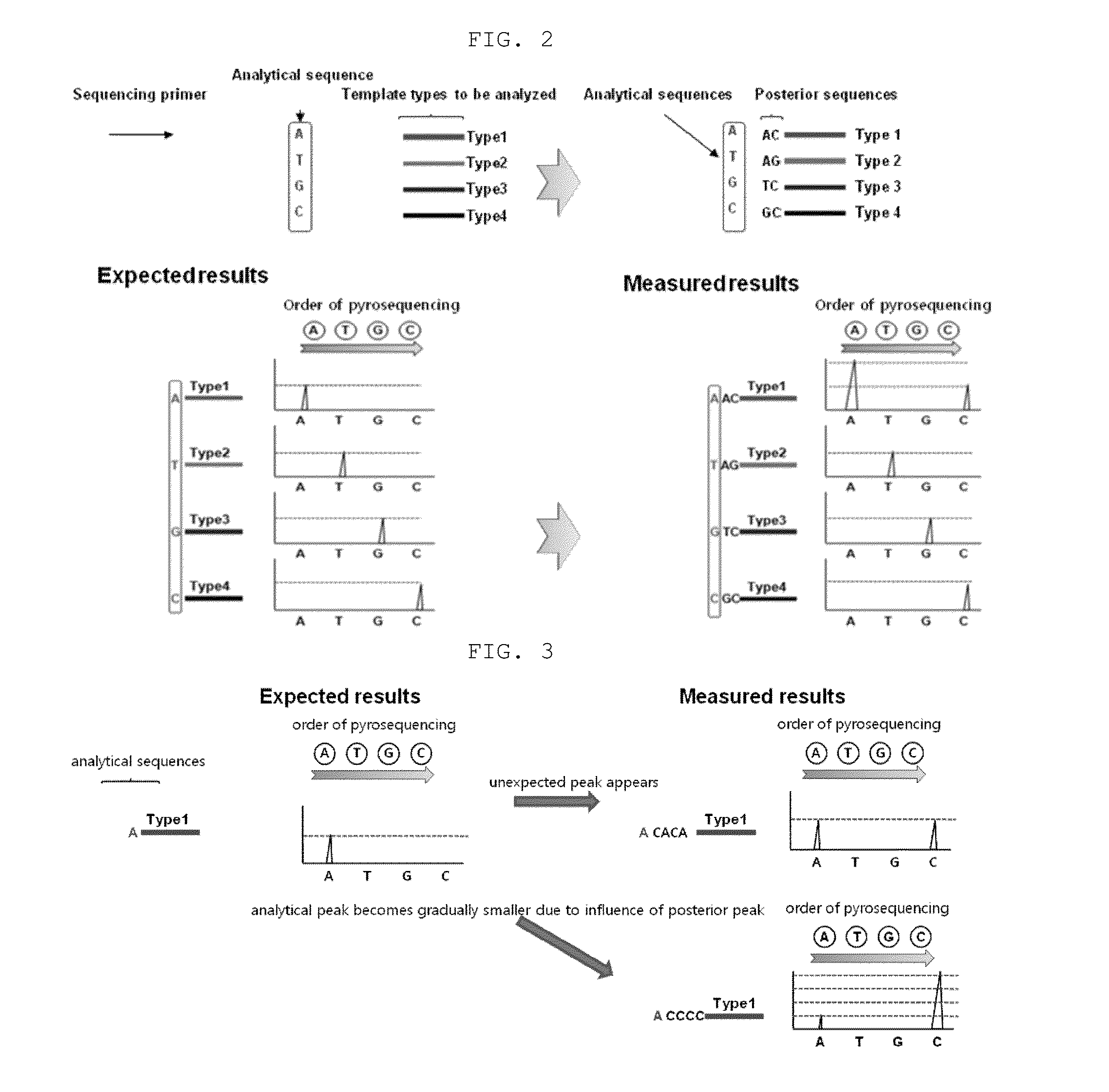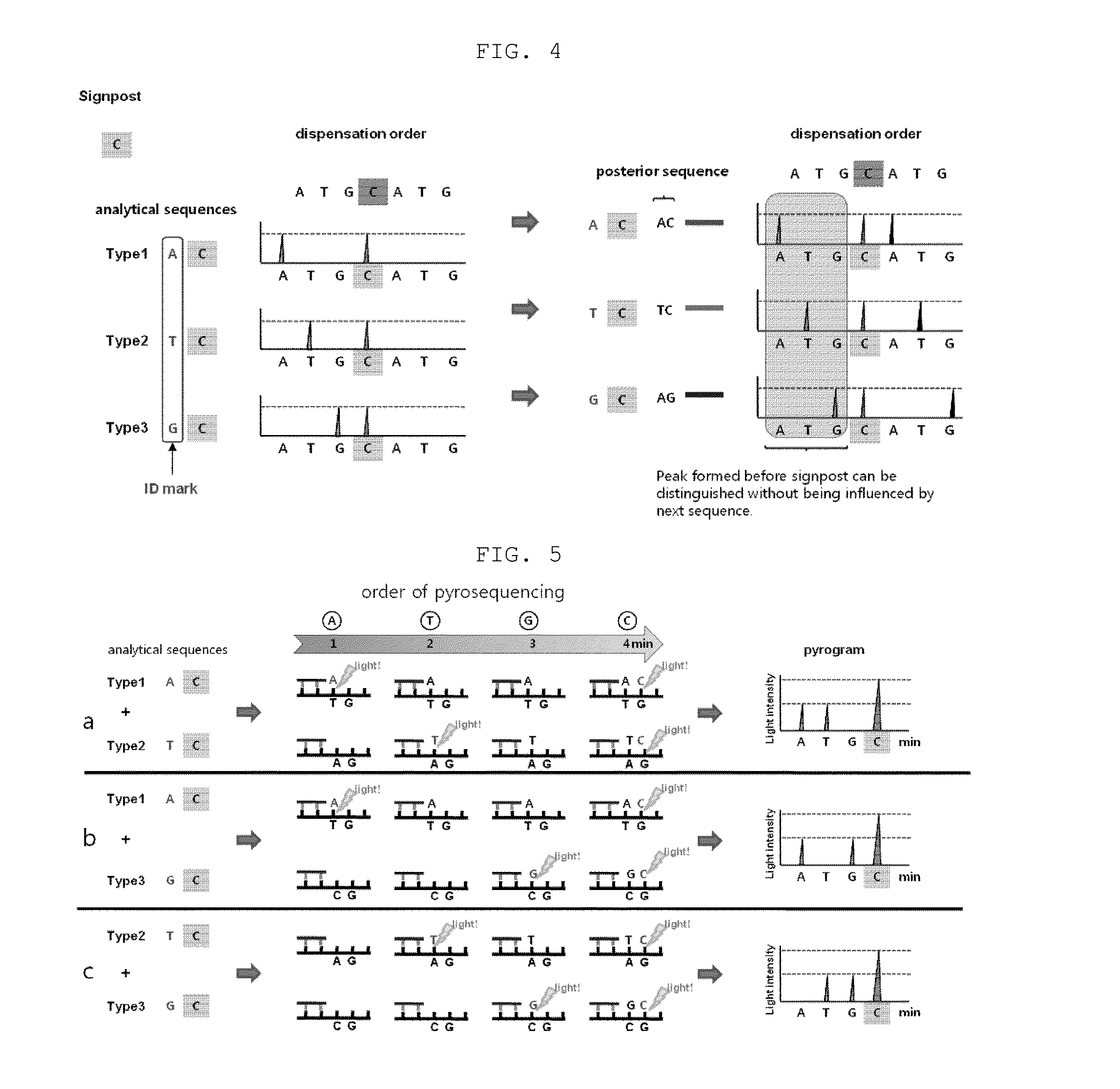Genotyping method
a gene typing and genotyping technology, applied in the field of gene typing methods, can solve the problems of inability to identify the genotype through the interpretation of pyrograms, the method is generally too slow, and the technique is not suitable for most diagnostic settings, and the peak detection difficulty is difficult to achiev
- Summary
- Abstract
- Description
- Claims
- Application Information
AI Technical Summary
Benefits of technology
Problems solved by technology
Method used
Image
Examples
example 1
Genotyping of HPV Using ID Sequence
[0109]Using the ID sequences of the present invention, the genes of high-risk HPV (human papilloma virus) types causing cervical cancer were typed.
[0110]ID sequences for 15 high-risk HPV types were designed as shown in Table 1 below.
TABLE 1ID sequences for 15 HPV typesID sequencesHPV typesAGCACATGHPV type 16TGCACATGHPV type 58CGCACATGHPV type 18GACACATGHPV type 33GTCACATGHPV type 52GCGACATGHPV type 35GCTACATGHPV type 45GCATCATGHPV type 51GCAGCATGHPV type 31GCACTATGHPV type 39GCACGATGHPV type 56GCACACTGHPV type 59GCACAGTGHPV type 68GCACATAGHPV type 66GCACATCGHPV type 82
[0111]A nucleotide sequence specific to each of 15 HPV types was linked to the 3′ terminal end of each of 15 ID sequences, and a common sequencing primer sequence was linked to the 5′ terminal end, such that 15 types of different ID sequences can be used in pyrosequencing with a single sequencing primer, thereby constructing PCR primers containing the ID sequences (Table 2).
TABLE 2ID-...
example 2
Multiplex HPV Genotyping
[0118]Using the HPV ID sequences constructed in Example 1, genotyping of multiple HPV infections was performed.
[0119](1) Multiplex Genotyping of 4 HPV Types
[0120]Using the genomic DNA of each of 4 HPV types (HPV 16, 33, and 66) as a template, PCR amplification was performed with the GP5 plus primer and the GP6 plus primer. Then, using a 1:1 mixture of the PCR products for each HPV type as a template, PCR amplification was performed with 15 types of GT-HPV primers and a 5′ biotinylated GP6 plus primer. Then, the PCR products were pyrosequenced using a T7 primer.
[0121]As a result, as shown in FIG. 20a), the same pyrograms as theoretically expected results could be obtained.
[0122](2) Multiplex HPV Genotyping Using CaSki Cell Line and HeLa Cell Line
[0123]Using a mixture of 10 ng of the genomic DNA of the CaSki cell line (ATCC CRL-1550™) infected with HPV type 16 and 10 ng of the genomic DNA of the HeLa cell line (ATCC CCL-2™) infected with HPV 18 as a template, P...
example 3
Detection of KRAS Mutations Using ID Sequences
[0128]In order to detect mutations in the KRAS gene using the ID sequences of the present invention, ID sequences for three types of KRAS mutations, that is, mutations of codon 12 (GGT>GTT) and codon 13 (GGC>TGC and GGC>GCC), were designed (Table 6).
TABLE 6ID sequences for three types ofKRAS mutationsID sequencesKRAS mutation typesID1GTGCAGTcodon12 (GGT > GTT)ID2GTGCTGTcodon13 (GGC > TGC)ID3GTGCGATcodon13 (GGC > GCC)
[0129]In addition, a nucleotide sequence specific to each of the three types of KRAS mutations was linked to the 3′ terminal end of each of the ID sequences, and a common sequencing primer sequence to the 5′ terminal end, such that pyrosequencing can be performed using the three different ID sequences with a single sequencing primer, thereby constructing ID sequence-containing PCR primers (Table 7).
TABLE 7ID sequence-based KRAS primers: GT-KRAS IDprimersGT-KRAS ID forward primerKRASmutation-Sequencing primerIDspecific binding...
PUM
 Login to View More
Login to View More Abstract
Description
Claims
Application Information
 Login to View More
Login to View More - R&D
- Intellectual Property
- Life Sciences
- Materials
- Tech Scout
- Unparalleled Data Quality
- Higher Quality Content
- 60% Fewer Hallucinations
Browse by: Latest US Patents, China's latest patents, Technical Efficacy Thesaurus, Application Domain, Technology Topic, Popular Technical Reports.
© 2025 PatSnap. All rights reserved.Legal|Privacy policy|Modern Slavery Act Transparency Statement|Sitemap|About US| Contact US: help@patsnap.com



